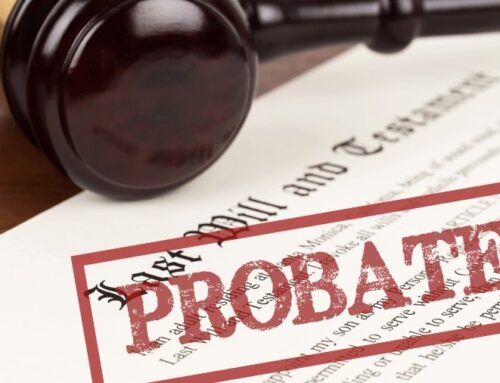The probate sale process can be a complex and emotional journey, especially for those who have recently lost a loved one. When a property is involved in a probate case, it requires careful navigation to ensure that everything is handled correctly and in compliance with legal requirements. Whether you’re an executor or a beneficiary, understanding how to navigate the probate sale process is crucial. This blog provides a step-by-step guide to help you through this often-challenging process. Learn more about ” Common misconceptions about probate sales”
Understanding the Probate Sale Process
Probate is the legal procedure for settling a deceased person’s estate, which includes distributing assets, paying debts, and handling taxes. When it comes to selling real estate during probate, the process involves several critical steps.
Step 1: Initiate the Probate Process
The first step in selling a property in probate is to open the probate case. This usually involves filing the deceased person’s will (if one exists) with the local probate court and submitting a petition to appoint an executor or personal representative to manage the estate.
Step 2: Appoint an Executor or Personal Representative
Once the probate case is opened, the court will appoint an executor (if there’s a will) or a personal representative (if there’s no will). This person is responsible for overseeing the probate process, including managing estate assets like real property.
Step 3: Inventory and Appraise the Property
The executor must conduct a thorough inventory of the estate’s assets, including real estate. It’s essential to obtain an appraisal to establish the fair market value of the property. This will help in setting an appropriate sale price and is often required for court approval.
Step 4: Obtain Court Approval for the Sale
Before listing the property, the executor usually needs to seek court approval for the sale. This process may involve submitting a petition that includes details about the property, the proposed sale price, and how the sale will benefit the estate. The court may schedule a hearing to confirm the sale.
Step 5: List the Property for Sale
Once you have court approval, it’s time to list the property. Working with a real estate agent experienced in probate sales can be beneficial. They can assist in marketing the property, scheduling showings, and negotiating offers. It’s essential to disclose that the property is in probate, as this informs potential buyers of any additional requirements.
Step 6: Review and Accept Offers
As offers come in, the executor will review them to determine which one aligns best with the estate’s interests. Negotiations may take place, and once an acceptable offer is found, it will need to be submitted to the court for final approval.
Step 7: Court Confirmation of the Sale
In some cases, especially if multiple offers are received, the court may hold a hearing to confirm the sale. This ensures that the sale is conducted fairly and in the best interest of the estate and its beneficiaries.
Step 8: Complete the Sale
After obtaining court approval, the closing process can commence. This involves finalizing the sale, transferring the property title to the buyer, and distributing the sale proceeds according to probate laws. It’s crucial to ensure all necessary documentation is in order to avoid delays.
Step 9: Finalize the Probate Process
Once the property is sold, the executor will continue to manage any remaining tasks in the probate process, such as settling debts, paying taxes, and distributing the remaining assets to heirs.
Conclusion
Navigating the probate sale process can be challenging, but understanding each step can make the journey smoother for executors and beneficiaries alike. By following the outlined steps and seeking professional guidance when needed, you can successfully manage the sale of a property during probate while honoring the wishes of the deceased.
FAQs
Q: How long does the probate sale process take?
A: The timeframe can vary widely depending on the complexity of the estate, local laws, and court schedules. It can take anywhere from a few months to over a year.
Q: Do I need an attorney for a probate sale?
A: While not legally required, hiring an attorney experienced in probate matters can help navigate legal complexities and ensure compliance with local regulations.
Q: Can I sell a probate property before court approval?
A: You can list the property for sale before obtaining court approval, but the sale itself typically requires court confirmation.
Q: Are probate properties sold as-is?
A: Yes, most probate properties are sold as-is, meaning buyers may need to address repairs or renovations after the sale.
Q: What if multiple heirs disagree on the sale?
A: Disagreements among heirs can complicate the sale process. It’s advisable to maintain open communication and, if necessary, seek mediation or legal guidance to resolve conflicts.
By understanding the probate sale process and following these steps, you can approach the situation with confidence, ensuring that you meet legal obligations while honoring the memory of your loved one.











